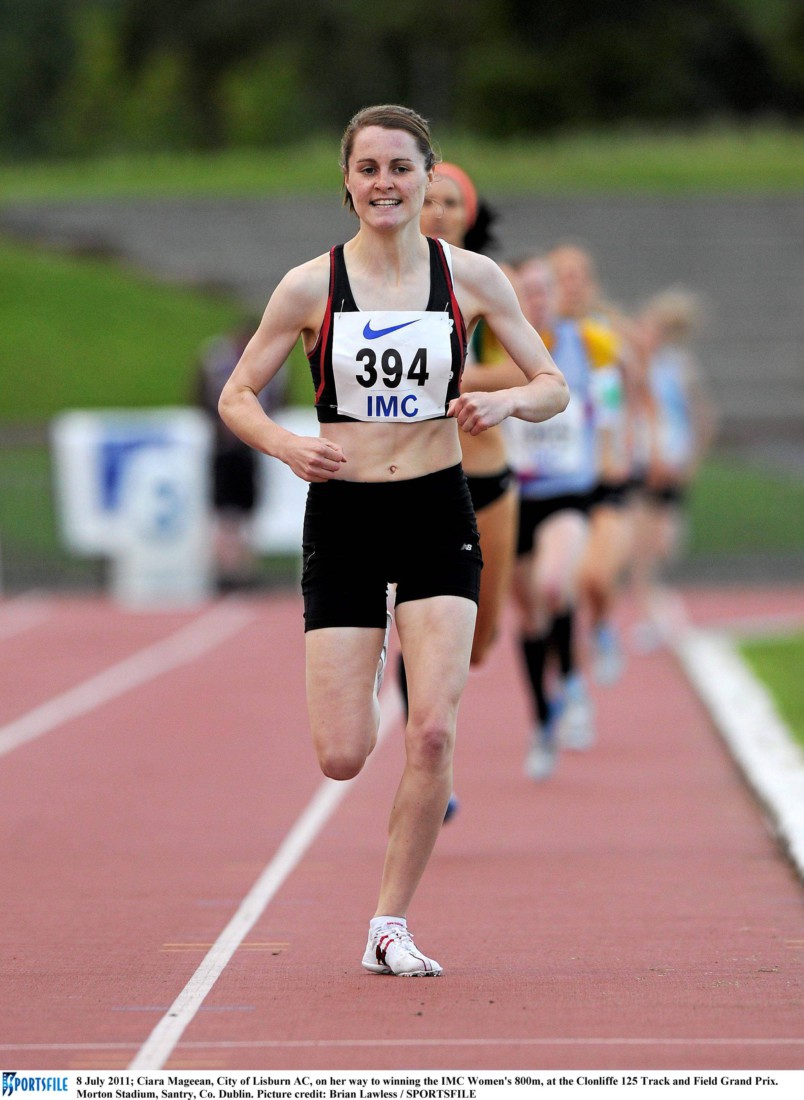THE days are now shortening at a rapid rate. It’s dark when we get up and it’s dark by the time we clock off from our day jobs.
This is the easiest time of year to lose focus. No games, Christmas and all that comes with it is just around the corner and you’re probably thinking that easing up now will do harm to leave you fresh for the January horror show.
Throw in the fact that the majority will be left to their own devices with collective sessions having ceased and it all equates to the high possibility that getting reacquainted with the Xbox, Netflix or even a few cans is very possible.
So how can we strike the balance? You probably desire a workout that’s going to take a shorter length of time than the standard 90-minute team session in season. If you’re by yourself it can be difficult to hold focus and motivation if you are used to the team environment. Most crucially with relevance to Gaelic games, it is preferrable that your chosen indulgence will imitate force, energy output and movement patterns relative to the sport.
So, let’s talk about MAS. (Maximal Aerobic Speed). Put simply this is a simple and effective way of testing and improving aerobic power. MAS is the speed at which maximal oxygen uptake occurs (VO2 MAX). If you have been listening to Jim McGuinness’s analysis on Sky during this championship campaign you will often hear him reference his ‘aerobic animals’ from the 2012 All-Ireland winning team.
What we can assume he means by this is players with an exceptional aerobic output, that could cover huge distances in game at a high intensity. His team was built on the foundation of a watertight defensive structure but the ability to transition from back to front was what set them apart in that season – effectively his middle third players repeatedly moving at high pace up and down the field.
While tactics employed across the board may have varied since then, the need for extremely well-conditioned athletes that can cover huge areas of ground in game with intent has not altered. You can prepare yourself with purpose for 2021 if you follow the instructions that follow.
Testing:
While there are several means of testing MAS, a simple template I follow is to set up a 300 metre square grid. I put five minutes on the clock and players will run for the duration of that time. As this is a five-minute test it is worth noting players should not take off as they would in a 100 metre sprint. A speed that is too high will lead to excessive fatigue early in the test and will most likely skew results. Players should maintain a strong pace throughout, a pace relative to their overall fitness level. Aerobically advanced players will typically score over 1300 metres in this test, so let’s use that number to calculate.
1300 metres completed in 300 seconds –
Maximum aerobic speed = 4.33 metres per second
We can use this data to tailor our chosen fields. For GAA I find a good formulation to be the distance that you can cover in 15 seconds. Manipulation of recovery time is key. Our games are chaotic, especially for those middle 10 players who can be expected to repeatedly perform bouts of high tempo running with limited rest. I find the 15-on,15-off ratio of 1-1 to be an excellent way of achieving the required conditioning.
Short intervals, passive recovery – 15 seconds working at 110% of your MAS is a good starting point. We start at 110% and build gradually through extension of reps, sets and then an increase in distance.
4.33 metres per second x 15 seconds = 64.96 metres. This gives us 100% of MAS.
64.96 X 1.10 = 71.45 This achieves 110% MAS and gives us our starting point.
Typically, a first MAS session will resemble:
(3×8) 15-on, 15-off covering 71 metres in 15 seconds or less repeatedly. After each set the athlete will take two minutes active recovery before resuming. Completing two sessions a week over a four-to-six week block with incremental overload adjustments will be highly beneficial.
MAS provides an easy method to plan and deliver a progressive overload in conditioning work, specific intensities and volumes of running appropriate to the stage of season. Follow this template in the four-week build up to Christmas to leave you in a better place come the dreaded January sessions.
Peter Nugent is the current Manager/Head coach of St Colmcille’s, Grange in Armagh. He previously managed his home club of Wolfe Tone, Derrymacash. He had coached teams since his late teens. He has a gegree in Sports Studies.
He is launching a GAA Performance venture that will incorporate both S&C and skills coaching templates in mid November.
Receive quality journalism wherever you are, on any device. Keep up to date from the comfort of your own home with a digital subscription.
Any time | Any place | Anywhere












